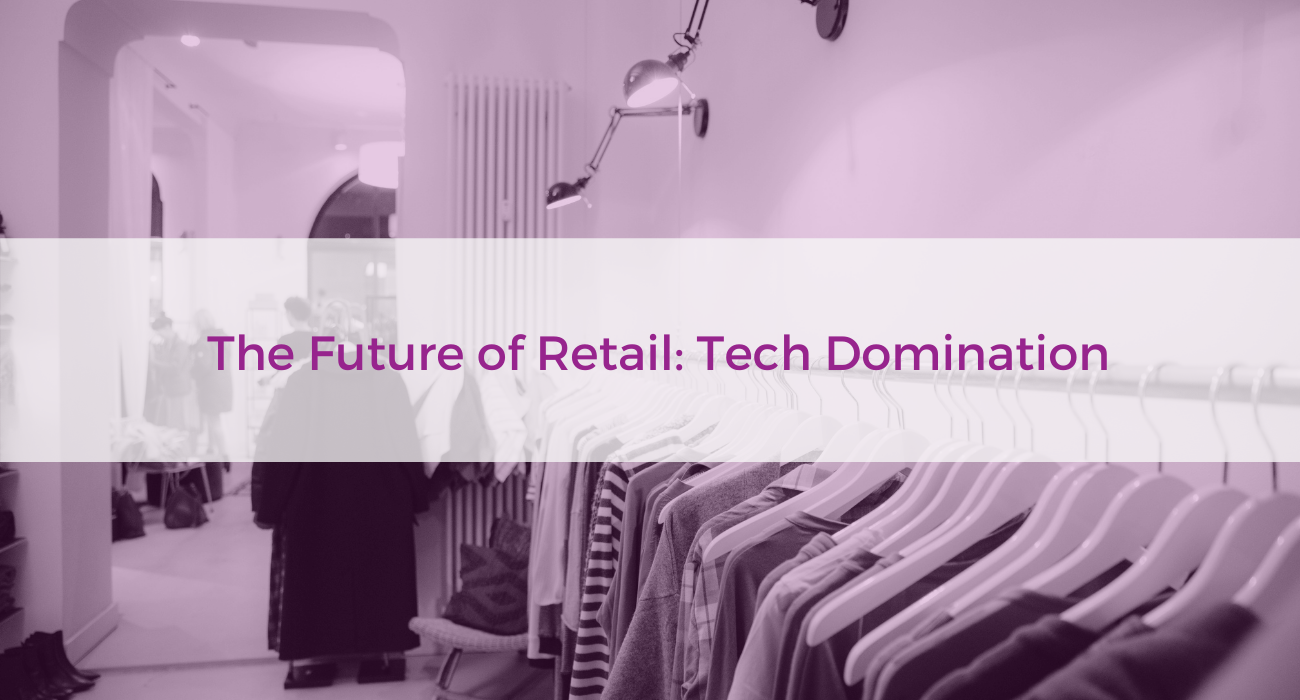
The Future of Retail: Tech Domination
The retail industry has definitely experienced a rollercoaster of a year. From having to completely shut for months on end, to opening with social distancing restrictions and mask-wearing, it’s fair to say that the high street suffered.
If anything, the pandemic meant that e-commerce boomed. The public had no choice but to shop online for their non-essential items, and for many, getting deliveries through the post was a main lockdown highlight. However, with lockdown measures in place, warehouses were drowning from demand, with many not having the resources to meet customer expectations.
Fast forward to Freedom Day, we are now in a non-restricted country after a year of imposed rules and measures. But what does this hold for the future of retail?
The High Street: No Restrictions. No Entry.
Freedom day isn’t for everyone, as research conducted by YouGov on behalf of Neo PR’s client, Manhattan Associates, supply chain and omnichannel commerce experts, shows that 57% of British consumers won’t return to the high street after July 19th without wearing a mask.
Additionally, a further 39% of shoppers have said they would feel safer shopping in-store if queuing remains limited by store capacity. While 52% of consumers agree that lack of social distancing and sanitising facilities will make them shop online rather than on the high street too.
Aside from restrictions lifting in full, people continue to fear spreading Covid-19. 33% of shoppers want to see limited numbers in-store maintained post-pandemic and 53% of consumers will hold back on visits to the high street because they would prefer to shop online.
Craig Summers, UK Managing Director, Manhattan Associates commented: “The effects of the pandemic look set to continue to affect consumer confidence and the footfall on British high streets until at least the end of 2021. With these figures in mind, it is clear that retailers will need to continue to rethink and reshape their approaches to in-store, online and supply chains, in order to meet consumer expectations and concerns that continue to be influenced by the effects of the pandemic.”
Personalising the Experience
The Covid-19 pandemic may have accelerated the shift to online, but is the future of retail heading to a digital-first world? The convenience of a slick online experience can be rapidly undermined by the disappointment experienced when the clothes don’t fit – especially if they have to be time-consumingly returned.
The past year has reinforced the divide between essential and non-essential retail; the difference between the products people need and the items they enjoy buying. And, of course, the competition has escalated. Every retailer is online now and customers have spent a year clicking from one to the other. Where’s the loyalty? Where’s the differentiation?
Russell Loarridge, Director UK, ReachFive, argues that many pure-play online retailers will fail if they don’t embrace a ‘clicks and mortar’ model that has the needs and desires of the modern consumer at its heart. Personal, human communication is a vital part of the engaged customer experience – and without it, pure-play retailers will begin to look out of date and irrelevant.
There is a huge opportunity to think creatively about how, where and when customers can become part of a physical interaction that reinforces the brand experience. Pop-ups, for example, could create a destination – with loyal customers invited for time-limited VIP events at their local town, before the pop-up moves on to another location. The technology is simple – Wi-Fi, tablets and mobile payment solutions can be in place immediately. Add in screens, virtual mirrors, coffee and a hang out zone and a retailer can create a new customer destination that changes the perception and enhances the brand.
Online footfall alone is not going to keep these retailers in business. Clicks and mortar is the future: to create and retain loyal customers, retailers need to be able to combine the efficient, personal online experience with the immersive engagement that is only possible face to face.
After a rocky year, retailers have now understood the importance of embracing digital transformation and the adoption of offering a personalised experience to their customers. This approach is vital in today’s post-pandemic world, or retailers could face the same fates as Arcadia and Debenhams. In the future, we can expect to see smarter supply chains, bricks-and-mortar retailing, in turn, offering a seamless shopping experience – but only if retailers embrace and adapt to the right tools and technologies to meet demands in order to stay afloat.




